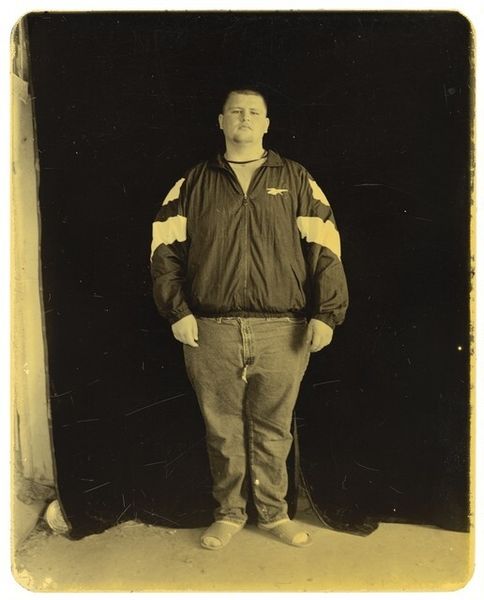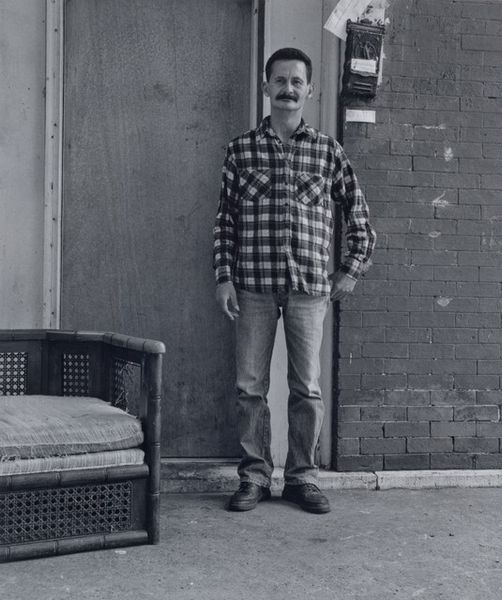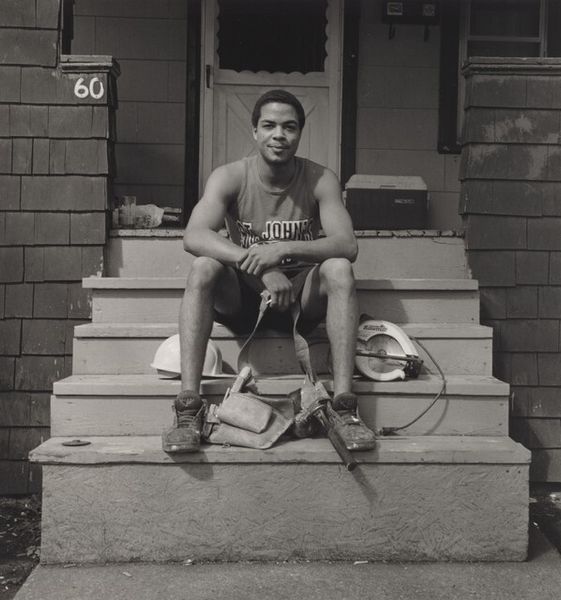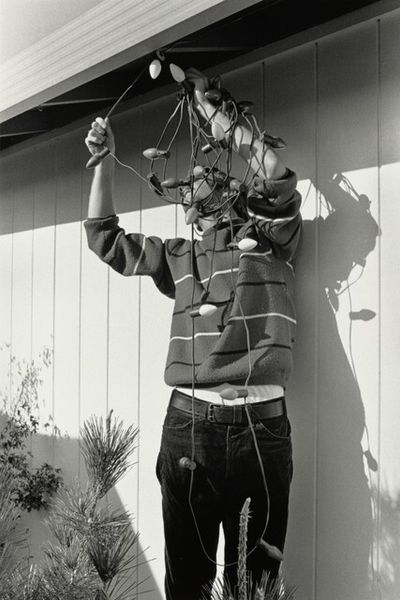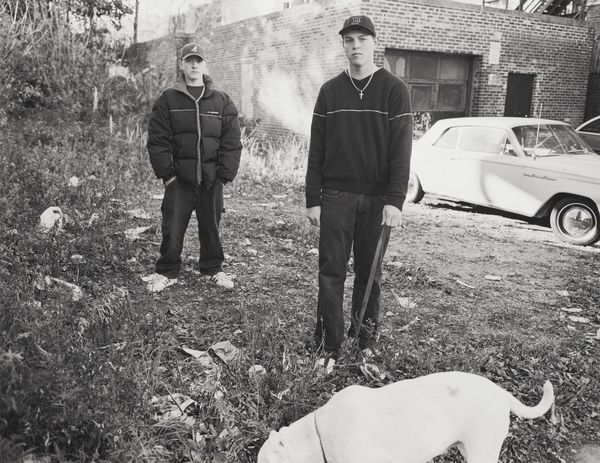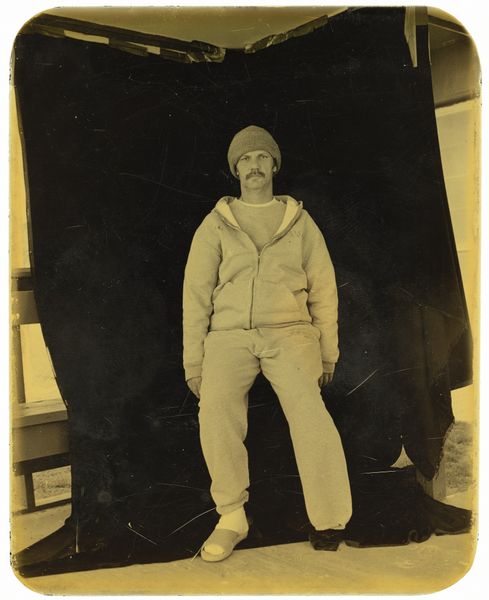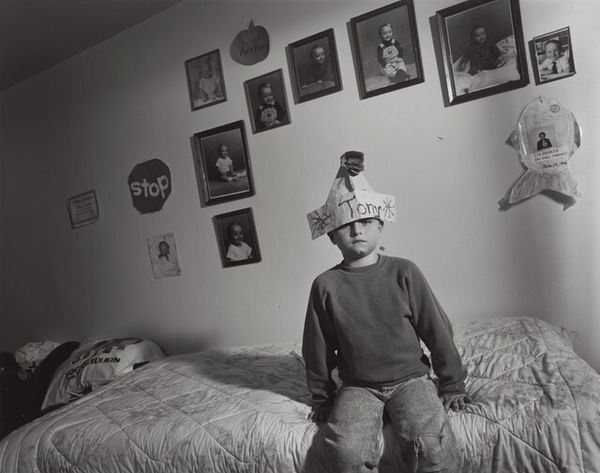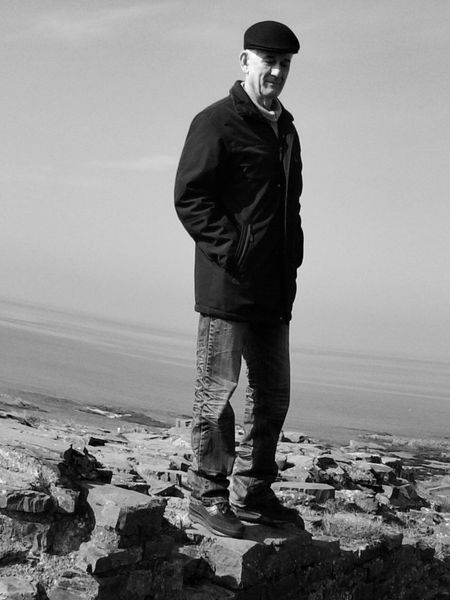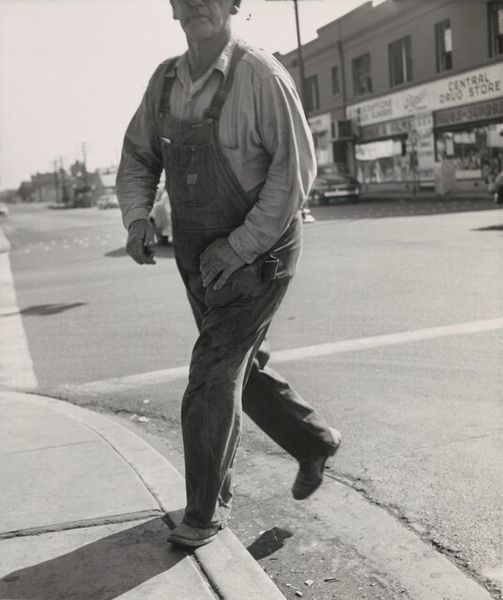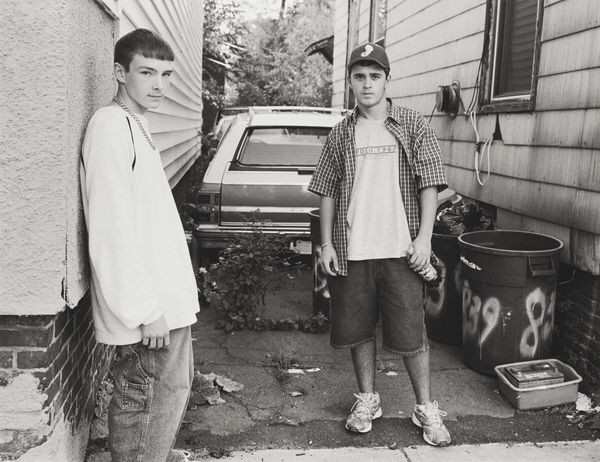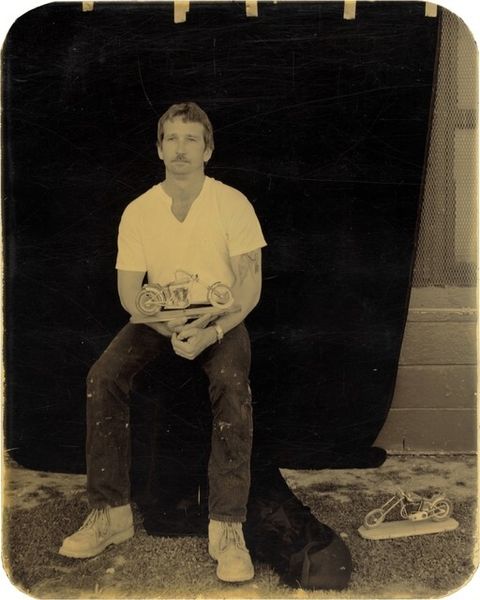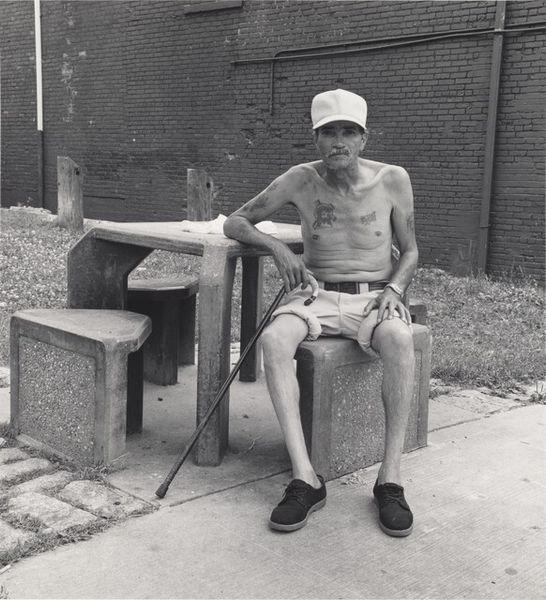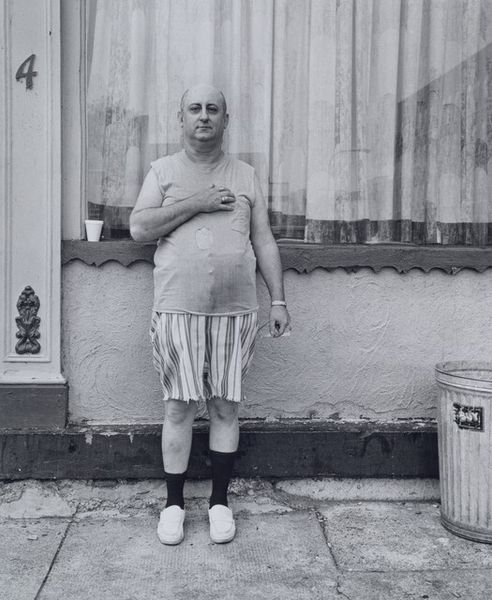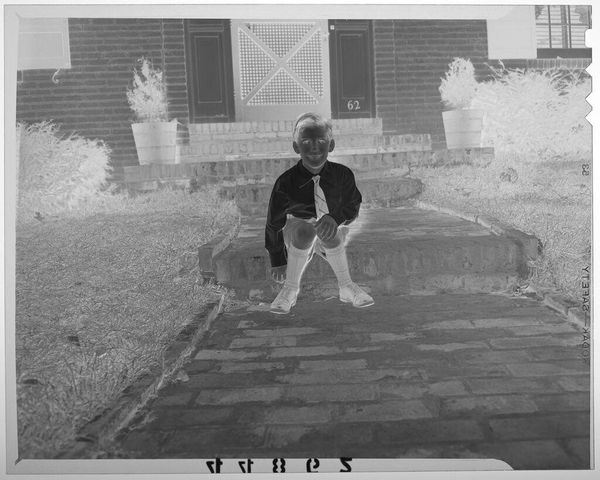
photography
#
portrait
#
contemporary
#
black and white photography
#
photography
#
black and white
#
monochrome photography
#
realism
Dimensions: image: 19.8 x 16.2 cm (7 13/16 x 6 3/8 in.) sheet: 25.1 x 20.2 cm (9 7/8 x 7 15/16 in.)
Copyright: National Gallery of Art: CC0 1.0
Curator: Milton Rogovin's portrait, "Jimmy Webster (Lower West Side series)" from 2002, captures its subject in striking clarity. What's your initial reaction? Editor: The black and white palette lends a strong sense of documentary realism, doesn't it? There's also a weightiness, almost a stoicism, in Jimmy Webster's stance. Curator: Rogovin's work, particularly this series, powerfully confronts issues of labor, class, and identity. He spent decades documenting working-class families, framing his work to be intentionally anthropological. Jimmy Webster and those like him are the subjects but it’s a shared narrative of their struggles. Editor: Right, and his methodology is really interesting when looking at that shared narrative. The material aspects jump out—the clothes Jimmy is wearing. This portrait is a study in textures, right down to the peeling paint of the house behind him and the snow. Curator: Absolutely, Rogovin’s empathetic approach gives his subjects agency; he challenges typical class portrayals, especially within discussions of late capitalism and urban decline, giving them a narrative voice through careful representation. It's a profound engagement with the lives and struggles of the marginalized. Editor: And how Rogovin chose to realize this is powerful; black and white photography’s intrinsic relationship with historical memory underscores this effect of witnessing, too. Curator: Precisely, Rogovin's work transcends mere photography. It offers a commentary on the intersections of poverty, labor, and urban life, resonating today, as gentrification erases whole working class existences. Editor: Looking closely, you really notice those worn and comfortable denim work pants Jimmy is wearing. There is a relationship to place through the physical objects of daily life and its surroundings. Curator: Indeed. Rogovin's unflinching portraits force us to confront systemic inequalities, reminding us of the shared humanity that transcends economic disparity and demanding social change. Editor: I am left contemplating not only Jimmy's lived experiences but how photographic representations help construct these memories. Curator: This photograph does the important work of reminding us.
Comments
No comments
Be the first to comment and join the conversation on the ultimate creative platform.
